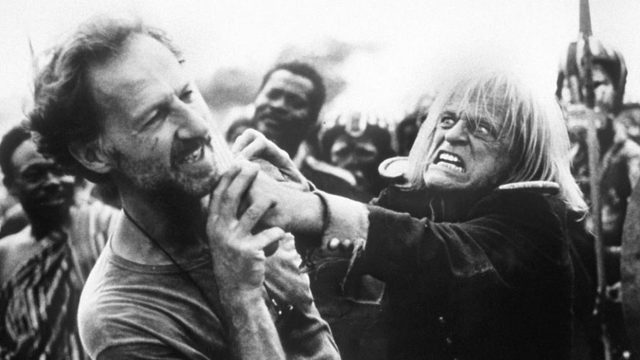AI might produce a Michael Bay, but it will never produce a Werner Herzog. At least not in my lifetime. Frankly, I’d be surprised if it were able to produce a Ron Howard—solid journeyman work that is usually at least slightly familiar. Though perhaps one of the reasons the studios are so willing to negotiate with the directors above the other two major guilds is that the work of a director is harder to imagine AI doing in the first place. Still, the three examples I’ve given will stand in for types of movie if nothing else.
Where Werner excels, where he cannot be reproduced by AI any time soon, is in finding the connections between things. This is notably true in his documentaries, where consideration of a volcano will segue into things like the early human origins of toolmaking. Oh, it makes sense—I myself learned how to knap flint, a volcanic stone, in fourth grade, as the natives of California did for thousands of years before the conquest by the Spanish—but compare the YouTube algorithm to your own most recent Wikipedia rabbit hole to understand the difference.
It’s possible AI writing is at a point where it could bring us Winnie the Pooh: Blood and Honey, but it can’t bring us Clueless. Knowing how to take an existing story and turn it into something that feels original is a human trait, and our computers are not yet capable of such a thing. Many of the most celebrated movies have been made doing just such a thing. Turning Taming of the Shrew into 10 Things I Hate About You—or the life of William Randolph Hearst into Citizen Kane—is beyond AI abilities for now.
Don’t get me wrong—we have to make the decisions now, before the ability is there. If we wait, exploitation will happen before anyone can do anything about it. We have to figure out what our rules are going to be before we need them. After will be too late for all of us—too late for the computers, too, come to that; a computer capable of those conceptual leaps will need protecting, because from there, what rights should it have? Get everything in place now.
But for now, there is still of necessity a place for humans where there is not a place for computers. Humans know how humans think. We recognize patterns of thought. We know one another. And maybe the computers will be there someday, but for now, anyone thinking they can replace humans with computers needs to really stop and think how bad autocorrect still is. And then contemplate that they never can find anything they want to watch on Netflix right away.
Help me continue to create by supporting my Patreon or Ko-fi!


